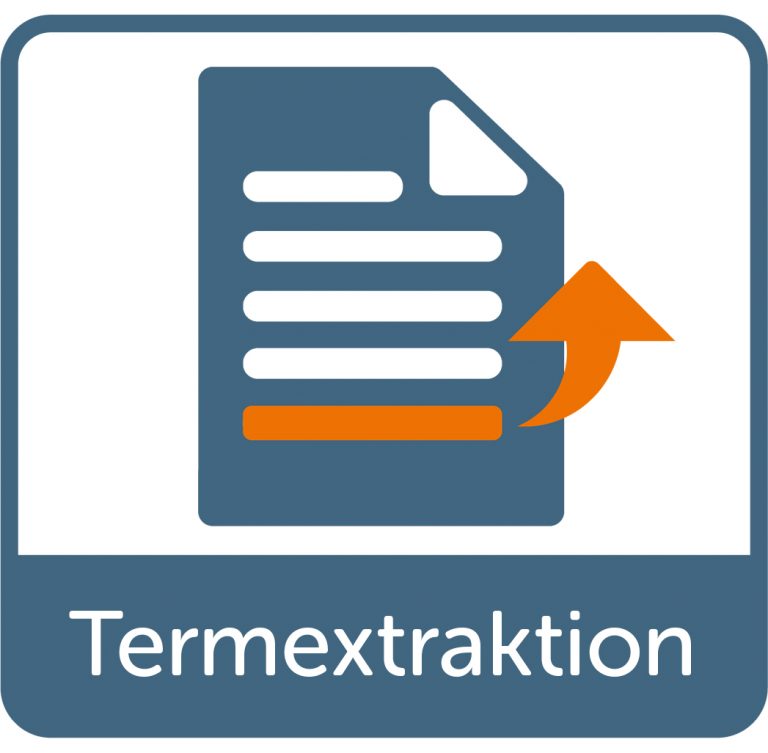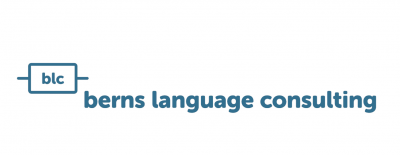Terminology Management
Terminology management for international companies.

Use terminology to communicate cleary.
Let’s start with the basics: What is terminology? Terminology refers to the entire pool of concepts and their respective terms in a specific domain.
A concept is a unit of thought that is formed from a set of objects by determining the properties common to these objects by means of abstraction. A designation is the representation of a concept by linguistic or other means, such as a term. When talking about a term, this refers to the linguistic designation of a universal term from a certain field of expertise. (Source: DIN 2342:2011-08)
Boost your business with terminology management.
Terminology management improves the quality of your texts in all languages. The standardized use of terminology is essential when creating texts of all sorts as it ensures consistency and that readers understand the content correctly. For translation, the terminological check in the source language is worth its weight in gold. It significantly reduces terminology errors, which greatly improves text comprehension. Departments such as marketing, sales and documentation can use terminology profitably by incorporating it into concept maps and ontologies.
In concept maps, terminology is represented in a joint context as concepts are linked according to the relations between them and then displayed as a graph. Ontologies then go one step further by making the concept maps machine-readable. Like this, chatbots, semantic searches, voice assistants etc. can derive contexts and corporate knowledge from professionally coordinated terminology.
Save translation time and costs for your whole company by applying optimal terminology processes!
Let your company speak one language.
Of course, all colleagues who are responsible for translations in your company and who use the professional translation software benefit from the above-mentioned advantages. However, colleagues who are not directly involved in the translation process, but who commission translations, will also be convinced by the improved translation results and the reduced translation time. And then there is another component that is also very useful for non-translating departments: improved knowledge transfer via terminology management.

Use case “Unify corporate terminology and make it available to all”
The challenge: A medium-sized machine manufacturer constantly found terminology errors and inconsistent terms in translations. In certain departments, the company maintained terminology, but it was not widely available. The various departments were often unable to agree on terminology.
Solution: berns language consulting introduced a central terminology system:
After an analysis of the current state and recording of the requirements, we presented suitable systems to the customer. After the system selection, system testing and configuration followed, as well as the extraction and technical preparation of terminology. The company then set up cross-departmental approval workflows to unify terminology. Since then, corporate terminology has been available to all employees in a unified and coordinated way in a web application.
Use case “Using terminology for semantic search”
Challenge: A large German car manufacturer developed a diagnostic application for guided troubleshooting in the workshop. In this application, stored error descriptions lead to predefined solutions. However, if the employee did not search exactly for the stored text, he did not find any results.
Solution: berns language consulting first assigned synonyms to existing concepts. We also used ontologies to link common language terms to terminology: We prepared the existing database for the diagnostic application and merged it with company-internal terminology lists. Based on this, we created concept maps and ontologies to represent the conceptual relations in a machine-readable format. The diagnostic application now accesses a terminologically and ontologically prepared database. This allows them to assign a variety of search queries to the correct solution. Thus, a flexible, comprehensive use of the diagnostic application was realized.
Use terminology software to manage your terminology company-wide.
With terminology management software, you significantly improve maintenance, alignment and availability of terminology throughout your company. Users participate in the terminology creation process and discuss with terminologists via workflows. Released terminology is available in real-time for everyone in your company. Authors, translators and revisors use this terminology to create and translate text, thus improving content quality.
Concept maps are a great additional asset as users navigate between different concepts to understand their relations to each other. This helps to understand information and to develop essential terminology for your company.
Use terminology software for better language quality.
An important addition to terminology software are authoring systems for language quality assurance (LQA). The principle here is that people also use software to control the correct use of terminology. This enables them to create a consistent language from the start during text creation.

Technical writers also benefit from the use of authoring systems. You will receive direct feedback and suggestions for improvement on the correct spelling or use of terminology. In addition, authors can propose new terminology immediately when writing texts. For example, new product names are added to the terminology workflow if needed.
These suggestions can then be coordinated and released in the terminology system. Ideally, the release of the new concept correlates in time with the translation. The approved term is then immediately available to the translators. This reduces working time and significantly increases the quality of corporate publications.
Conclusion: If you use terminology software to control terminology, technical writers can focus entirely on the technical content. Moreover, translators can benefit from prescriptive terminology work. The end result are high-quality texts in all languages.
How does terminology management work?
How does terminology management work?
On the way to high-quality terminology management, you need to take some very important steps. For example, the first step in building a terminology base is term extraction. To do this, you should extract technical terms from existing texts and determine which term is the preferred or rejected one.
You then add the terms in a terminology database. This is where terminologists also enter all the necessary metadata. The relevant metadata is always customer-specific; for high-quality terminology, a definition and usage status of the individual terms are recommended.

Before releasing the terminology with all metadata, you should plan time and space for discussion with experts. This is the only way to create technically correct, high-quality terminology that is accepted by all specialist departments. Some terminology systems offer predefined, flexibly adaptable terminology workflows for coordination with experts.
This allows the responsible terminologists to prepare the concept in a way that matches the company’s expertise. This workflow should be accommodated in all languages in which you have created terminology, in order to obtain an ideal terminology database. In the market languages, coordination with translators and market contact persons should be emphasised. The translators define technically and linguistically correct terms in the target language and the market contacts then evaluate whether these terms are suitable for the target market. Following the terminology workflows in the different languages, the approved terminology is available to the different departments via the chosen terminology system.
By integrating terminology into an authoring system and a translation tool, technical writers as well as translators are ideally supported. Therefore, with such a system, you can lay an important foundation for the management and use of terminology. However, a termbase can only remain of high quality if it is subject to regular checks and revisions. Once you have mastered all these steps and maintained your terminology, you are on the best way to establishing a flawless terminology management.
You aim for good terminology management, but the implementation is rather challenging? Do you need support with your terminology process or with the selection of suitable software? Then contact us, we are happy to assist since terminology carries meaning!
This is how we support you with your terminology management.
This is how we support you in the field of terminology management.
Defining processes
- Design processes for capturing, managing, and using terminology
- Integrate terminology processes into system and process landscapes
- Create terminology guidelines
- Structuring terminology in ontologies
Building a termbase
- Build terminology by extracting terms from data assets
- Prepare terminology according to customer requirements
- Discuss term suggestions in terminology circles
- Unify terminology across the company
Introducing software
- Define requirements for terminology systems
- Evaluate and select terminology systems
- Connect terminology systems to other systems
- Perform system pilots and proof-of-concepts
Terminology processes, as well as terminology management, are unique to every company. Therefore, there is no 100% solution that you can easily apply. For this reason, terminology management and all the associated processes look different for everyone and can be implemented according to individual needs.
Do you have any questions about what ideal terminology management can look like for you? Write us, we will be happy to answer your questions.
We consult you so that you can also have efficient terminology management in place.



